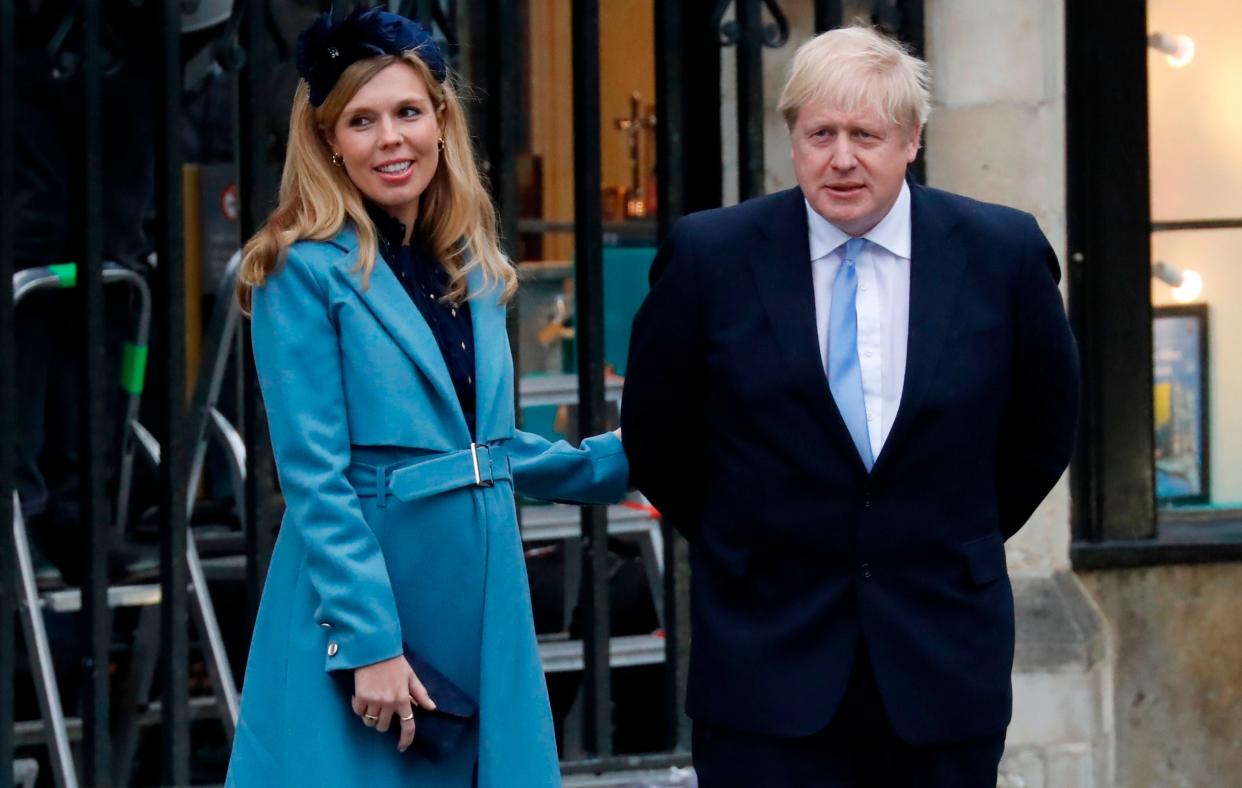John Lewis nightmare? Why it’s a mistake for Boris Johnson to alienate the department store shoppers

In 1864, a man called John Lewis opened a draper’s shop on Oxford Street.
In 1905, he bought the department store Peter Jones. Since then, the brand has grown to be shorthand for certain qualities – you may know the slogan “never knowingly undersold”, you might have cried at its Christmas advert, you have probably been there with your parents at some point growing up or have friends who had their wedding lists there (like Labour leader Keir Starmer) .
But for the Prime Minister and his fiancée Carrie Symonds, John Lewis means something different. They are itching to get rid of the “John Lewis nightmare” that Theresa May left behind in Downing Street (so much so that there is now an electoral commission into where the money came from to pay for their renovations).
Until now, the only John Lewis nightmare I could think of was being tempted to buy more than I could afford there or having to cart a heavy bit of furniture home on the Tube. But Symonds and Johnson’s disdain for Jean Louis, as some middle class people lovingly call it, reveals a very particular quality of the English class system - and one that could prove politically alienating for Johnson. Sarah Vine has not helped by saying that the Prime Minister can’t be expected to live in a skip.
For so long, politicians have poured energy into looking just like us - learning how much a pint of milk is, drinking beer, choosing their Desert Island Discs carefully. Johnson has just marked himself out as not like that. John Betjeman once said that nothing bad could ever happen at Peter Jones, summing up our attachment to the shop, and friends in Sheffield are devastated at John Lewis’s recent closure. You could argue that John Lewis is one of our greatest exports (useful as we are Brexitting). But for some people, like Symonds and Johnson, it is clearly too accessible.
To understand this John Lewis shaming, you have to look at the subtle class differences that make this country such a mind bending place. I first realised this at university. I arrived with a starter set of IKEA plates, cutlery and pans, but all my pride at having crockery of my own dissipated when I saw one of my new flatmates unpacking his kit. It was all from John Lewis. Call me materialist but I was impressed. I grew up thinking that shopping at John Lewis is a sign that you had made it.
But it didn’t stop there. Later on that term, some people who had all gone to boarding school together came round for a party. “Oh, John Lewis,” said one woman. “How sweet and high street”. While I had been admiring John Lewis, they pitied my friend for shopping there. For them, it was mainstream and, frankly, a bit common. One later confided that her school had swapped its uniform supplier from Harrods to John Lewis, “to look like they were more egalitarian”.
It’s the same sentiment that informs patronising comments like “oh, you found something nice at Zara, how clever” and “you go to Pret? I prefer something a bit more creative and independent” (read, expensive and hard to find). These comments are only heard in the upper echelons of the upper class – probably from the relatives of those people who shamed Margaret Thatcher for wearing Marks and Spencer’s blouses (there were plenty of other things to shame her about, why focus on M&S clothes?). And what it ignores is that for vast swathes of the country, these shops are expensive. You go there as a treat.
John Lewis isn’t straightforwardly democratic but it comes close with its slogan never knowingly undersold - if you find something cheaper they price match it. And while some of its items are expensive, it is friendly and accessible to browse. When I think of going shopping, one of the first images I have is of going to the Oxford Street branch of John Lewis with my mum on a Saturday afternoon, mainly to browse. We’d go past the Barbara Hepworth sculpture outside, try some perfume downstairs and go up the escalator, admiring all the cushions and furniture.
It may not have the raffia wallpaper that Symonds wants (no, I had never heard of raffia wallpaper either) but John Lewis is a place full of possibility. We need someone to stick up for it. If only Andy Street, the former John Lewis boss who is now the Conservative mayoral candidate for the West Midlands would comment. In the meantime, Symonds and Johnson can keep Lulu Lytle, where lamps start at £1,250 - next time I need something for my house, I will be going straight to John Lewis.
Read More
Lulu Lytle: the interior designer who’s inspired the Number 11 Downing Street makeover
Inside Number 11 Downing Street: how could Boris Johnson’s flat refurbishment cost £200,000?

 Yahoo News
Yahoo News 
